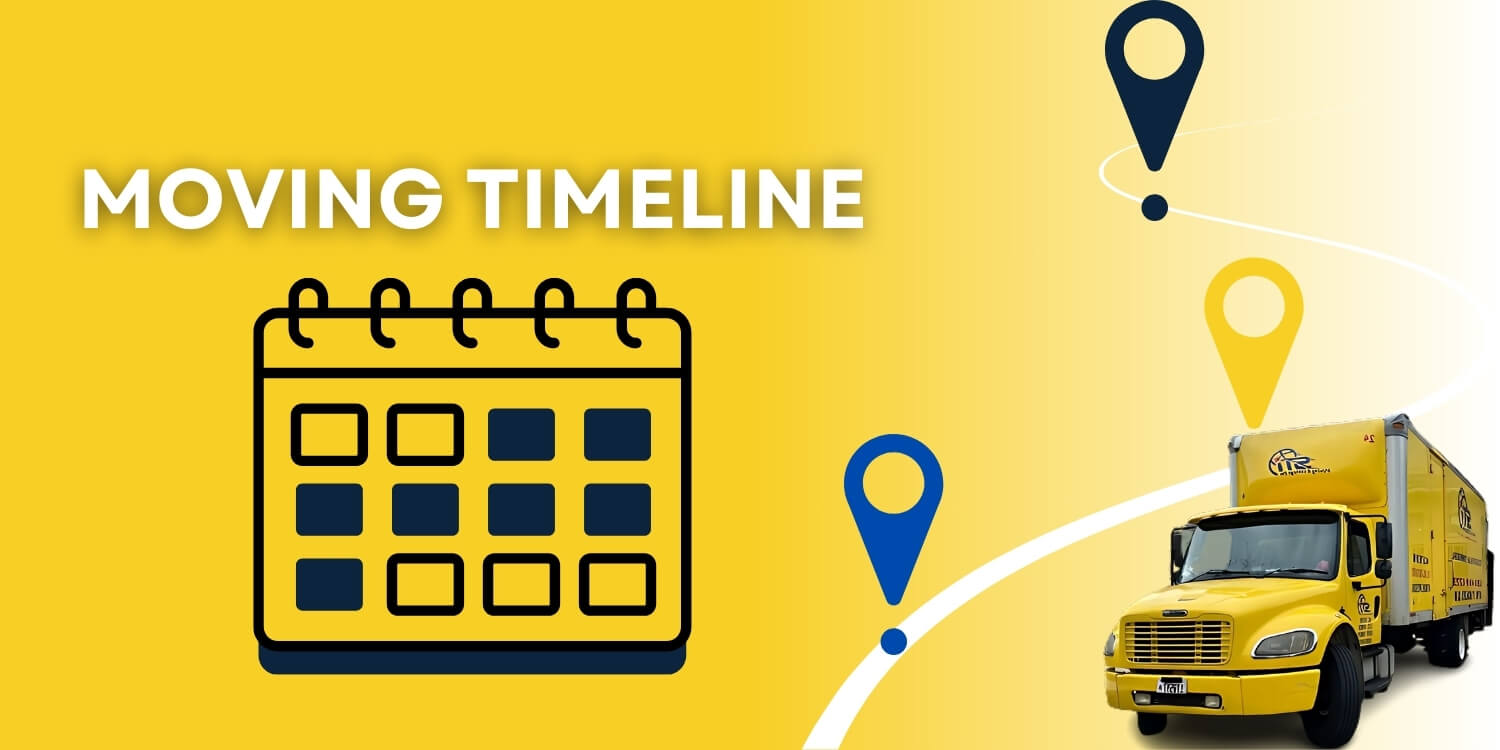It’s always a good idea to start planning your move as early as possible. People who’ve moved before say having a simple timeline can really make everything easier. It helps you stay organized and keeps the whole family on track. You can even give small jobs to each family member including the kids, so everyone helps out and gets involved in the process.
Eight Weeks Before Moving
- Call your moving company and lock in your moving date.
- Go through storage spaces like the attic, basement or shed and start clearing them out.
- Use up items you can’t take with you, like frozen foods or extra cleaning supplies.
- Get in touch with the local visitor center or chamber of commerce in your new town to learn more about the area.
Six Weeks Before Moving
- If your company is moving you, find out what costs they’ll pay for and what you’ll need to handle yourself.
- Check with the IRS or your accountant to see if you can get any tax deductions for moving.
- Start sorting through your things. If you haven’t used something in a year, think about selling it or donating it.
- Make a list of people and services you need to inform about your move—like friends, banks, subscriptions and others.
- Sign up for the local newspaper in your new town to learn more about the area and what’s happening there.
- Collect your vehicle registration and license papers.
- If you need storage, arrange it now. Your moving consultant can help with that.
- Reach out to your kids’ school, doctor, dentist, lawyer and accountant to get important records. Ask if they can refer you to someone in your new area.
Four Weeks Before Moving
- Go to the post office and fill out a Change of Address form so your mail goes to your new home.
- If you have pets or plants that need special care, make travel plans for them.
- Call your utility companies—like gas, electric, water, internet, cable and trash—to schedule when to stop service at your old place and start it at the new one. Keep your current services on until moving day.
- Contact your insurance providers (car, home, health, life) to update or transfer your coverage to your new address.
- If you’re packing on your own, get some moving boxes and start packing up the things you won’t be using in the next few weeks.
- Think about holding a garage sale to sell things you don’t need anymore or donate them to a local charity.
Three Weeks Before Moving
- Book your travel and any overnight stays for the move but try not to fly out on moving day—just in case there are delays.
- Collect all your important documents, like insurance papers, wills, property records and stock information.
- Begin closing your bank accounts in your current city and open new ones in the city you’re moving to.
Two Weeks Before Moving
- Take your car in for a check-up to make sure it’s ready for the trip. Check things like antifreeze or coolant, especially if you’ll be dealing with extreme weather.
- If your current or new place has elevators, talk to the building manager and reserve elevator time for moving day.
- Call your moving consultant to review all the plans and make sure everything is on track.
One Week Before Moving
- Pay off any remaining bills to local businesses or service providers.
- Clear out your safety deposit box, grab your dry cleaning and return any borrowed items like library books or rented DVDs.
- Take your pets to the vet for any needed vaccinations and get copies of their medical records.
- Drain the gas and oil from equipment like lawn mowers or snow blowers.
- If you’re not bringing your plants, give them to someone who can care for them.
- Write out simple, clear directions to your new home for the movers. Include your travel plans and emergency contact numbers.
Two to Three Days Before Moving
- Defrost your fridge and freezer, and leave the doors open so they don’t accidentally close on kids or pets.
- Unplug and prepare large appliances like your washer, dryer and stove for the move. If you need help, your moving consultant can assist with this.
- Pack a box with essentials you’ll need as soon as you arrive at your new home. Keep it with you or ask the movers to load it last.
- Put aside the things you’re taking in your car so they don’t get packed on the truck by accident.
- Call your moving consultant to confirm the movers’ arrival time and share any last-minute details.
Moving Day
- Have someone at home to answer any questions the movers might have.
- Write down the readings from your gas, electric and water meters.
- Read your bill of lading and inventory list carefully before signing anything. Keep these documents safe until the move is complete and all issues are settled.
If you’ve followed this moving timeline step by step, you’ll feel good checking off tasks. It also helps you avoid missing anything important—and that can take away a lot of stress.



